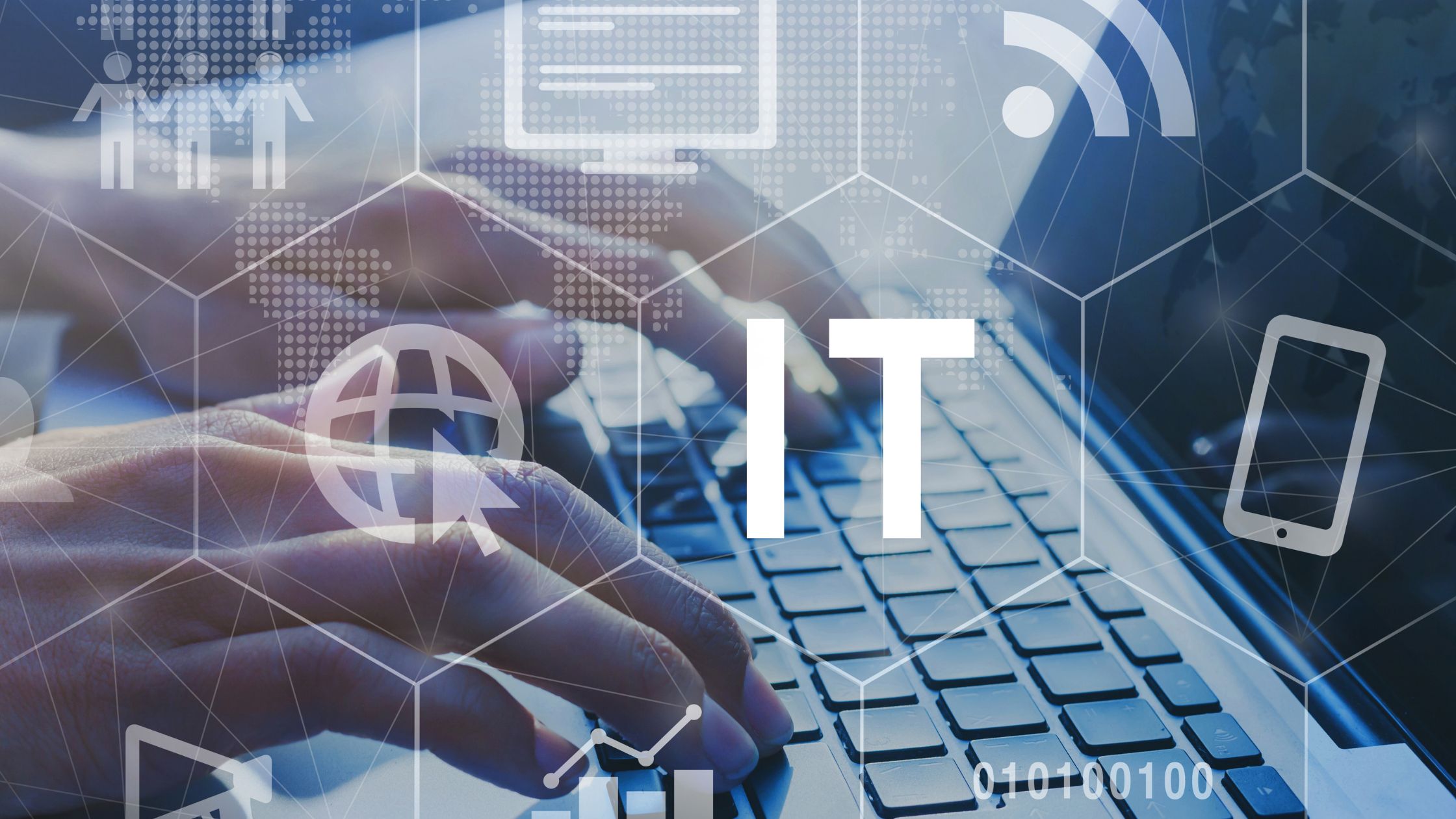

When something breaks, most businesses call IT for help. The issue gets fixed, work resumes, and everyone moves on. On the surface, that seems perfectly reasonable. IT is doing its job, right?
But over time, many business owners begin to notice a pattern: the same issues resurface, technology decisions feel reactive, and IT conversations are always about problems, not plans. What’s often happening isn’t a technical failure. It’s a relationship mismatch.
Whether you realize it or not, every business makes a choice about how it views IT support: as a vendor or as a partner. And that distinction has a much bigger impact on long-term success than most people expect.
For many organizations, treating IT as a vendor is the default, not a deliberate decision. Historically, IT has been positioned as a utility, similar to calling a repair service when something stops working. When systems were simpler and less integrated into daily operations, that approach worked reasonably well.
Most business owners don’t think about IT until there’s a problem. There’s also familiarity in the model. A problem occurs, a ticket is submitted, and the goal is to get back online as quickly as possible. No long-term discussions, no broader context required. It feels efficient and contained.
The challenge is that technology no longer plays a background role in business. It touches productivity, security, compliance, customer experience, and growth. Yet many companies are still using a support model designed for a much simpler era.
A vendor relationship is typically transactional. The focus is on individual issues, hourly work, or clearly defined projects. Success is measured by whether the immediate problem was resolved.
In this model:
This isn’t inherently bad. Vendors can be highly skilled, responsive, and effective at solving specific problems. For organizations with very limited needs, this approach can feel sufficient, at least initially.
The limitation isn’t competence. It’s context.
Over time, a vendor-only relationship can quietly create friction. Because the provider is focused on isolated tasks, there’s little opportunity to step back and ask broader questions about how systems are working together, or whether they’re still aligned with the business.
Common consequences include:
The business impact is often subtle at first: downtime that disrupts workflows, technology that feels harder to manage as the company grows, or decisions that feel rushed rather than strategic.
An IT partner operates from a different mindset. Instead of waiting for issues to arise, a partner invests time upfront to understand the business itself: its goals, risks, people, and direction.
This relationship is built on ongoing communication, not just support requests. A partner looks beyond the immediate fix and considers how today’s decisions affect tomorrow’s operations.
That means:
At ICC, this partner approach is rooted in the belief that technology should support the business, not create friction or uncertainty. The focus isn’t just on keeping systems running, but on helping organizations operate with confidence.
The real difference between a vendor and a partner shows up in outcomes. A partner measures success by how well technology enables people to do their jobs, protects the organization, and supports growth.
This includes:
When IT is aligned with leadership goals, technology becomes a strategic asset rather than a constant concern.
In the short term, vendor and partner relationships can look similar. Issues still get fixed. Tickets still close. The contrast becomes clearer over months and years.
Vendor-based relationships often feel like:
Partner-based relationships tend to result in:
The difference isn’t just smoother operations, it’s peace of mind.
There’s no universal answer for every organization. The right approach depends on how much you expect technology to support your business, your tolerance for risk, and how important long-term planning is to your leadership team.
It may be worth asking:
For businesses that value stability, foresight, and alignment, an IT partner model offers something a transactional relationship can’t: a shared investment in long-term success.
At ICC, partnership means planning ahead, communicating clearly, and growing alongside the businesses we support, because technology works best when it’s built around people, not just systems.
If your business is located in Natrona County, learn more about our IT support services in Casper.
February 3, 2026


Most business owners don’t wake up in the morning thinking about servers, software updates, or cybersecurity risks. They’re focused on clients, employees, cash flow, and growth. If technology is working, it barely registers, and that’s completely understandable.
In fact, this mindset isn’t careless or negligent. It’s human. When IT is doing its job well, it fades into the background. The problem is that by the time technology does get attention, it’s often because something has already gone wrong.
Good IT is quiet. Emails send without delay. Files open when you need them. Phones ring. Systems log in. There are no alerts demanding attention and no obvious warning signs that something might be off.
From the outside, it feels safe to assume things will keep working the same way tomorrow as they did yesterday. After all, nothing has broken yet.
This invisibility is actually a sign that technology is doing what it’s supposed to do. But it can also create a false sense of security. One where IT slowly slips down the priority list simply because there’s no immediate reason to think about it.
When IT issues finally surface, they rarely do so at a convenient time. A server goes down in the middle of a workday. A security incident disrupts operations. A critical system fails right before a deadline.
The impact goes far beyond frustration.
Waiting until something breaks often leads to:
These situations force businesses into crisis mode. Decisions are made quickly, options are limited, and costs are higher than they would have been with time to plan.
The issue isn’t just the technical failure; it’s the lack of preparation that turns a manageable issue into a disruptive event.
This is where the difference between break-fix IT and proactive IT becomes clear.
A break-fix approach is reactive by design. IT is called when something stops working. The goal is to restore functionality as quickly as possible, and once the issue is resolved, attention shifts back to day-to-day operations.
A proactive approach looks at IT differently. Instead of asking, “What’s broken?” the focus becomes, “What could cause problems if we don’t address it now?”
The distinction isn’t about tools or technology. It’s about mindset.
Break-fix IT responds to problems after they occur. Proactive IT works to reduce how often those problems happen in the first place, and how disruptive they are when they do.
Think about how most businesses approach vehicle maintenance. Oil changes, inspections, and routine service aren’t done because the car has already broken down; they’re done to keep it from breaking down at the worst possible time.
Proactive IT works the same way.
Instead of reacting to failures, proactive planning:
This approach gives leadership space to make informed decisions instead of rushed ones. IT becomes part of business planning rather than an afterthought.
Proactive IT doesn’t mean constant disruption or complicated processes. In practice, it often looks reassuringly simple.
It means:
There’s no drama, no fire drills, and no pressure-driven decisions. Just steady, informed progress.
For business owners, that translates into fewer surprises and more confidence that technology is supporting, not slowing down, the organization.
At ICC, the goal isn’t just to fix what’s broken. It’s to help business owners think ahead without feeling overwhelmed or intimidated by technology.
That starts with clear communication. No unnecessary jargon. No pressure. Just honest conversations about where things stand, where risks may exist, and what makes sense for the business.
ICC acts as a long-term partner and guide, working alongside leadership to plan, prioritize, and prepare. The focus stays on comfort and clarity, not complexity. When issues do arise, they’re handled quickly, but ideally within a framework that minimizes disruption.
It’s a relationship built around foresight, not panic.
Instead of waiting for something to fail, there are more useful questions business owners can ask:
These questions shift IT from a reactive expense to a strategic part of the business.
And often, the best time to ask them is when everything seems to be working just fine.
Contact us today for a free consultation.
February 3, 2026


For many business owners, IT planning feels overwhelming before it even begins. It can sound like lengthy documents, complex frameworks, and technical decisions that require expertise most leaders do not have. As a result, planning for technology is often delayed or avoided altogether.
The truth is that effective planning does not have to be complicated. At its core, it is about awareness, prioritization, and ongoing conversations. Small, intentional steps can make a meaningful difference without adding unnecessary complexity.
A strong technology plan begins with understanding what you already have. This does not require a deep technical audit or detailed documentation. Simply knowing what systems your business relies on, how old they are, and whether they still support your team’s needs is a strong first step. Awareness also includes recognizing where technology causes friction. Slow devices, recurring issues, or unclear processes are often signs that adjustments are needed. You do not need all the answers right away. Identifying the areas that need attention is enough to move forward.
Many businesses find that an initial technology assessment helps bring clarity without overwhelming their teams.
Not every system needs immediate attention. Effective planning focuses on what matters most to your business right now. That might be reliability, security, or supporting a growing team. By prioritizing a few key areas, businesses can avoid feeling overwhelmed and make steady progress. Addressing the most impactful needs first allows systems improvements to support daily rather than disrupt them. Clear priorities are often shaped through conversations about goals, risk tolerance, and available resources, not technical specifications.
IT planning works best as an ongoing conversation that evolves with your business. Regular check-ins help ensure systems keep pace with growth, staffing changes, and new goals.These conversations do not need to be technical. They should focus on what is working, what is not, and what could improve productivity or reduce risk. When planning becomes routine, it feels more manageable and far less intimidating. Businesses supported by proactive managed services often benefit from these ongoing discussions as part of their regular support structure.
Many businesses delay action because they believe it must be done all at once or done perfectly. In reality, progress is far more valuable than perfection. Even small improvements can reduce stress, improve efficiency, and prevent future issues. Taking incremental steps allows businesses to build confidence in their technology decisions. Over time, these steps create a clearer, more reliable environment without unnecessary complexity.
Effective planning is about creating clarity and direction. When businesses understand their systems, focus on priorities, and keep the conversation going, technology becomes easier to manage and more supportive of long-term goals. At ICC, IT planning is designed to feel approachable and practical. Our services help businesses create clear, manageable strategies that support growth. If you are ready to take the first step toward a more proactive approach, contact ICC to learn how we can help your business move forward with confidence.
January 20, 2026


Many businesses today can confidently say they have IT support in place. They have systems running, software installed, and someone they can call when something goes wrong. But having support and trusting the technology behind your business are not the same thing. Trust means confidence. It means knowing who to call, understanding what’s covered, and believing that when an issue arises, it will be handled without disrupting your entire business. When trust is missing, even small technology issues can create unnecessary stress and uncertainty.
Here’s what truly trusting your IT looks like, and why it matters.
When you trust your technology support, you don’t waste time figuring out who to contact or wondering if your issue will be taken seriously. You know exactly who is responsible for your systems, how to reach them, and what to expect once you do. Reliable support services provide clear communication and consistent follow-through. Instead of chasing answers, you receive updates, timelines, and explanations that make sense. This clarity helps business owners stay focused on running their company, not managing technology problems.
Businesses that rely on clearly defined technology services often experience fewer disruptions and faster resolution when issues arise.
Many businesses technically have support in place but aren’t fully sure what services are included. This lack of clarity can lead to hesitation. Owners may delay reaching out because they are unsure whether something is covered or billable. Trust comes from transparency. When you understand what your managed services include, you’re more likely to address small issues before they grow into larger ones. Clear service expectations remove guesswork and help businesses make confident decisions about their technology.
This level of understanding is often established through upfront conversations and ongoing planning, not emergency situations.
One of the biggest differences between simply having support and truly trusting it is peace of mind. Dependable technology services do not just fix problems. They reduce the likelihood of issues escalating in the first place. When systems are monitored, maintained, and reviewed regularly, concerns are often addressed before they cause downtime or disruption. Business owners can feel confident that backups are in place, security is being managed, and there is a plan if something unexpected happens.
A proactive approach to system management allows technology to support the business quietly and consistently.
Trustworthy technology support goes beyond troubleshooting. It aligns with your business goals, growth plans, and daily operations. Instead of reacting to problems, consistent service and proactive planning create a stable foundation that supports productivity and long-term success. When systems are dependable and well managed, technology fades into the background. Teams can work efficiently, leadership can plan with confidence, and the business can move forward without constant interruptions.
Trust isn’t built overnight. It is built through consistency, communication, and proactive support. Businesses that feel confident in their IT experience fewer surprises, clearer expectations, and greater peace of mind. At ICC, we believe IT should reduce stress, not add to it. Our services are designed to provide reliable, proactive support businesses can depend on. If you’re ready for systems that feel steady, predictable, and supportive, contact ICC to learn how we can help build confidence in the technology that supports your business.
January 8, 2026


At ICC, a proactive approach is key to long-term tech success. As the year comes to a close, take the time to evaluate your company’s technology and plan what you might need in the following year. Conducting a year-end IT review will help identify opportunities to enhance cybersecurity, boost productivity, and ensure that your IT system operates smoothly.
Here are a few tips on how to assess your needs and prepare your business for a productive and secure 2026.
Are any of your devices working slowly or experiencing frequent crashes? If so, it might be time for an upgrade. You’ll also want to review software licenses to ensure everything is up to date and compliant. Outdated or unsupported software can leave your business vulnerable to cyber threats and compatibility issues.
A strong defense against cyber criminals is critical. Review your existing security protocols, including antivirus protection, firewalls, and data backup systems, to ensure they are up to date and effective. If you don’t have them in place yet, consider multi-factor authentication and a recovery plan. Also consider employee training on the latest phishing scams.
Is your current storage setup enough for your team’s needs? Many businesses have shifted to cloud-based systems over the last few years. Cloud solutions offer scalability and cost efficiency. Ensure your storage setup is secure, efficient, and aligned with your growth plans.
As you set goals and budget for the coming year, consider what new tools can help you achieve them. AI-powered solutions, better storage solutions, or improved collaboration platforms are all possibilities. You should allocate resources for security enhancements, software renewals and purchases, and IT consulting.
Your technology plays a vital role in your company’s success. ICC can perform a comprehensive year-end IT assessment to help you identify gaps, strengthen your systems, and prepare for the future. If you’re missing one element, you could be putting your business at risk.
Contact us today to enter the new year with confidence and security.
December 16, 2025


Numerous companies have already found ways to utilize AI in their daily operations, including research, content creation, production efficiencies, and more. The following year will undoubtedly see the continued integration of AI into our businesses. Unfortunately, though, as AI becomes more sophisticated, so do the scams built around it. Here are a few AI scams we believe will be prominent in 2026, and you should be aware of.
AI-generated videos and audio have already proven to be capable of mimicking people with alarming accuracy. In 2026, advances in AI will make these deepfakes even more convincing. Scammers will use realistic video calls to simulate real-life situations in real-time, manipulating victims into transferring money or revealing sensitive data.
Since the pandemic, QR codes have become increasingly common, from restaurant menus to parking meters and event check-ins. Short for QR phishing, quishing is when scammers replace legitimate QR codes with malicious ones that direct users to fake websites or prompt them to download malware. People often fall for this since QR codes are not usually viewed as suspicious. In the future, AI will make quishing even more dangerous by leading victims to authentic-looking branded websites or payment platforms.
Many companies currently utilize chatbots for their customer service, enabling real-time conversations. Cyber scammers will use these sophisticated bots to take things to the next level by mimicking recruiters, online acquaintances, and more, employing contextual cues and emotional intelligence to establish trust. They will be contextually accurate, making it challenging to identify a scam.
As we move into 2026, AI will continue to be both a powerful tool and a potential weapon. The best defense is staying informed and vigilant. Always verify through a secondary channel when asked for personal information or money.
ICC is dedicated to helping businesses stay ahead of evolving AI scams. Our team provides advanced cybersecurity solutions, employee training, and system monitoring to help develop a comprehensive defense plan. As you consider your company’s needs for the New Year, consider ICC.
Ready to take the next step in your cybersecurity needs? Contact us today!
December 9, 2025


ICC is proud to share that our own Shaun Bullock has been honored as Rotarian of the Year by the Rotary Club of Laramie. This recognition celebrates Shaun’s commitment to community service, leadership and exemplifies the Rotary Club’s motto of “Service Above Self.”
Then Rotary Club President, Kelly Neville, was a strong supporter in getting Shaun nominated for the award. “Shaun embodies service in so many ways in our club and community and was an obvious choice for the 2024-25 Rotarian of the Year,” said Kelly. “He works tirelessly to support club service and fundraising projects - he never says no when help is needed. Most notably, Shaun was integral in starting the Taste of Laradise fundraising event which raises thousands of dollars for local charities and Rotary service projects while increasing business and awareness of Laramie's downtown.”
The Rotarian of the Year award recognizes individuals who go above and beyond to make a positive impact. As ICC’s Vice President of Sales in the Laramie, Wyoming region, Shaun does this through his professional work and his personal contributions to the community. His leadership reflects the Rotary Club’s values of integrity, commitment and passion for giving back.
“The Rotary Club of Laramie is filled with incredible people who care deeply about this community,” said Shaun. “To be recognized among them is a true honor. I’m grateful for the friendships, the opportunities to serve, and the difference we’re able to make together.”
Please help us congratulate Shaun on this well-deserved honor. We’re inspired by his example and grateful to have such a dedicated leader representing our company.
November 13, 2025


We’re thrilled to share that Jim Otepka has been promoted to Vice President of Operations!
Jim has been part of the ICC family since 2015. Over the past decade he has become a significant contributor to ICC’s success. Previously, as a Senior Technical Consultant, Jim has done a great job tackling some of our most complex IT challenges, built strong relationships with clients, and helped shape the supportive culture we have at ICC.
In his new role, as VP of Operations, Jim will take on a bigger leadership position and help to ensure ICC continues to deliver the exceptional service our clients rely on. “His combination of technical know-how, steady leadership, and genuine care for both clients and colleagues make him the perfect fit for this position,” said President and CEO of ICC, Kirk Bane.
When asked about his promotion, Jim shared, “I’m honored to take on this new role and continue growing with ICC. It’s an exciting position to be in, to help lead ICC into the future.”
We couldn’t agree more! Jim’s leadership and commitment to excellence embody what ICC is all about. Please join us in congratulating Jim on this well-deserved promotion!
November 13, 2025


AI (artificial intelligence) has quickly become our friend and enemy at the same time for businesses. On the one hand, AI is boosting customer service, improving data analysis and streamlining daily tasks. On the other hand, AI is making it easier for cybercriminals to bypass security and making illegal attempts harder to detect. Here are a few examples of AI-powered fraudulent activity that are affecting businesses right now.
Efforts in cracking passwords have traditionally involved a lot of trial and error. AI has significantly moved the process forward by analyzing password patterns and predicting passwords with alarming accuracy. You can use password managers to come up with highly secure passwords and store them.
AI-powered adaptive malware gives hackers an edge on bypassing securities. It learns how to mimic user behavior (even listening to keystrokes!), alter codes and disguise its activity to avoid being detected by antivirus programs and detection systems.
The use of machine learning to create deepfakes such as videos, images and audio are becoming increasingly common to target businesses. Many employees are falling victim to convincing voicemails that sound just like their boss directing them to do something like transferring funds or sharing sensitive information.
CAPTCHAs are meant to be a line of defense against bots. However, AI tools can now analyze CAPTCHA images nearly as good as humans, allowing bots to slip by security barriers. AI systems can recognize patterns and solve them quickly and accurately.
As cybercriminals continue to use AI to develop more fraudulent methods to attack businesses, companies need to implement stronger defenses. ICC can help assess your company’s security and put defense tactics into place like multi-factor authentication, security software and more to fully protect your data, sensitive information and reputation. If you are missing one element of cyber defense you could be putting your business at risk. Contact us to get started.
October 16, 2025
.jpg)
.jpg)
October is Cybersecurity Awareness Month. This is the perfect time to be proactive by assessing your cybersecurity and taking any steps that will help prevent costly breaches and protect sensitive data. Cyberattacks continue to be an ongoing threat. It’s more important than ever to safeguard your business against online threats.
Here are a few ways to protect your business that you can put into action this month.
Use a Password Manager There are many password managers that you can use, like bitwarden and RoboForm. There are some you can even try for free. Password managers help you create strong, unique passwords and then securely store them.
With so many employees working out of the office these days it’s important to really protect your network. Use strong encryption to secure your Wi-Fi and use VPNs for remote work to reduce risks by making it difficult for hackers to track your online activity.
Regularly back up data, securely storing it somewhere apart from your network, like to the cloud, a secure remote server or a physical storage device. If something were to happen to your main data, the backup will help your business recover quickly.
Hackers are always looking for vulnerabilities in software. It’s important to update your software. This includes your web browser, operating system and any other software that you use. So, always make sure to install updates when they’re made available.
You may not always have the resources in-house to keep up with cybersecurity tasks. Consider partnering with an IT company like ICC so you can focus on your own job responsibilities.
Cybersecurity Awareness Month is a good opportunity to upgrade your defense against cybercriminals. ICC can help you monitor threats, implement a comprehensive audit and make recommendations on optimizing IT procedures. If you are missing one piece in your line of defense, you may be putting your business at risk. Contact us to get started with a consultation.
October 9, 2025